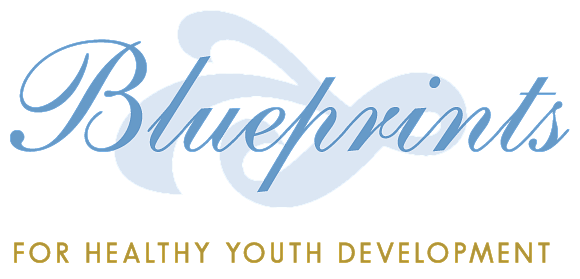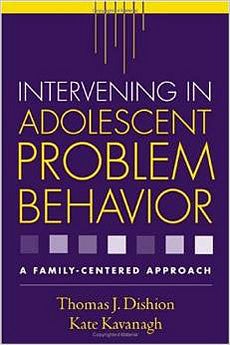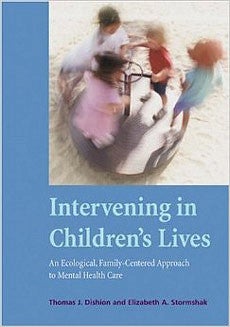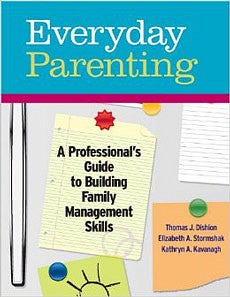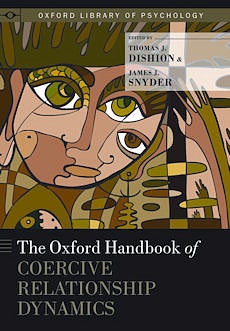The Family Check-Up is a strengths-based intervention that reduces children’s problem behaviors by improving parenting and family management practices. The Family Check-Up integrates assessment with motivation-enhancement strategies to tailor intervention goals to meet the unique needs of each family and increase family engagement. Several studies and more than 30 years of evidence show that the Family Check-Up is effective.
The Family Check-Up provides parents with the tools that they need to manage their children’s behaviors effectively and to build a strong and positive relationship with their children. Any professional that provides services to families with children can use the Family Check-Up.
The Family Check-Up is recognized as a model program by several registries, including:
Recommended Reading
Intervening in Adolescent Problem Behavior,
by Thomas J. Dishion and Kate Kavanagh (Guildford Press, 2003)
This book highlights the Family Check-Up as a multilevel, preventive intervention for at-risk adolescents and their families. Grounded in more than 15 years of important clinical and developmental research, the Family Check-Up has been nationally recognized as a best practice for strengthening families and reducing adolescent substance use and antisocial behavior. The major focus is to support parents' skills and motivation to reduce adolescent problem behavior and promote success.
Intervening in Children’s Lives: An Ecological, Family-Centered Approach to Mental Health Care,
by Thomas J. Dishion and Elizabeth A. Stormshak (APA Books, 2007)
Core to the Family Check-Up model is that it can be used as the organizing feature of a family-centered treatment for child and adolescent mental health and drug use problems. The book “Intervening in Children’s Lives” by Dishion and Stormshak (2007) provides a thorough description of how to use the Family Check-Up for mental health and drug abuse treatment.
Everyday Parenting: A Professional’s Guide to Building Family Management Skills,
by Thomas J. Dishion, Elizabeth A. Stormshak, and Kate Kavanagh (© Research Press, 2012)
This research-based, family management training program can be used for guiding individual family therapy, leading parent groups, and training counselors to work collaboratively with the parents and other caregivers of children and adolescents. This manual presents a series of session outlines and materials and is divided into three skill areas: supporting positive behavior, setting healthy limits, and building family relationships. The book comes with a CD with over 50 printable handouts.
The Oxford Handbook of Coercive Relationship Dynamics,
Edited by Thomas J. Dishion and James Snyder (Oxford University Press, 2016)
Evidenced based services for families reduce coercive exchanges in families and promote positive engagement and relationships. The Oxford Handbook of Coercive Relationship Dynamics features the most recent, innovative applications of coercion theory to understanding psychopathology, developmental theory, and intervention science. The volume provides a multidisciplinary perspective on coercive processes, origins, and social functions to anchor coercion theory from multiple perspectives and to lay a theoretical and empirical foundation for innovative expansion of the coercion model to new areas of research.

